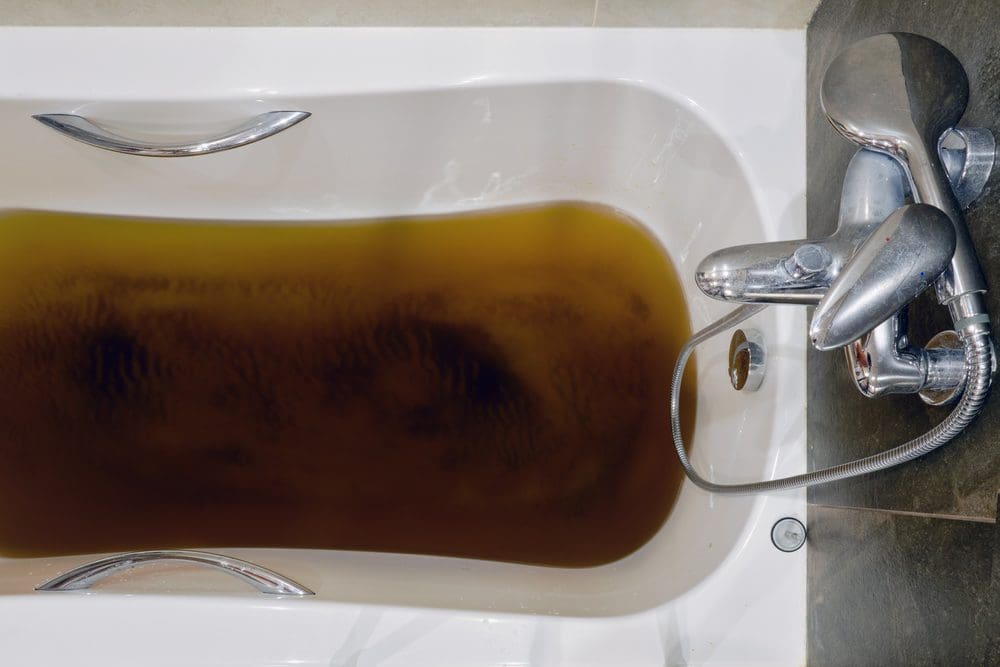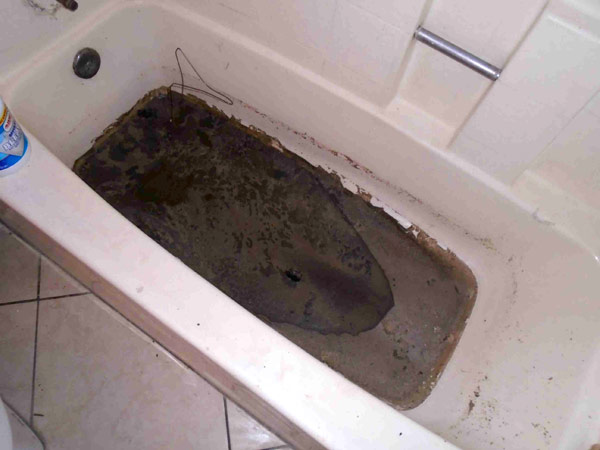How do you really feel in relation to What to Do if Sewage Starts Coming Up Through Your Bathtub?

Sewer back-up in the tub can be an upsetting and unsanitary issue for any kind of homeowner. Not just is it troublesome, however it additionally postures serious health risks and shows underlying concerns with the plumbing system. Recognizing why sewer is turning up through the bathtub is vital for taking proper activity to attend to the problem successfully.
Introduction to the Problem
Understanding the Issue
When sewage draws back up into the bathtub, it's a clear sign of a problem with the drain system. The wastewater that should be flowing far from your home is instead finding its way back right into your living space, which can lead to significant damage and carcinogen.
Potential Causes
Several factors can contribute to sewage backup in the bath tub. From clogs in the sewage system line to issues with the plumbing framework, identifying the root cause is vital for locating a solution.
Usual Reasons for Sewage Backup
Clogs in the Sewer Line
One of the most usual sources of sewer back-up is an obstruction in the sewer line. This can happen as a result of the accumulation of debris, grease, or foreign items in the pipelines, stopping proper circulation and triggering sewage to back up right into your tub.
Tree Root Invasion
Tree roots seeking wetness and nutrients can infiltrate drain lines with tiny cracks or joints. With time, these origins can grow and increase, triggering considerable damages to the pipelines and resulting in sewage backup issues.
Aging Framework
Older homes might have outdated plumbing systems that are more susceptible to corrosion, cracks, and degeneration. As pipelines age, they come to be more vulnerable to leaks and clogs, increasing the likelihood of sewer back-up incidents.
Heavy Rainfall or Flooding
During periods of heavy rainfall or flooding, the drain system may end up being overwhelmed with excess water, triggering back-ups and overflows. This can result in sewage backing up right into bath tubs and various other fixtures inside the home.
Health Dangers Associated with Sewage Back-up
Contamination of Water
Sewage back-up can contaminate the water in your house, posing a serious health and wellness risk to you and your family members. Direct exposure to contaminated water can bring about intestinal concerns, skin infections, and various other health problems.
Spread of Disease
Sewer contains dangerous bacteria, infections, and parasites that can cause a series of conditions, consisting of liver disease, cholera, and gastroenteritis. Entering contact with sewage or infected surface areas places you in danger of infection.
Mold and mildew Growth
Moisture from sewer backup can create suitable conditions for mold development in your home. Mold spores can worsen respiratory system problems and cause allergies in sensitive people, making punctual cleanup vital.
Indicators of Sewer Back-up
Foul Odors
Undesirable smells originating from drains or fixtures, especially in the shower room, might suggest sewer backup issues. These odors are usually strong and relentless, signaling a problem that requires prompt interest.
Slow Draining Fixtures
Tubs, sinks, and bathrooms that drain gradually or otherwise whatsoever could be experiencing sewer back-up. If multiple fixtures are influenced all at once, it's most likely that the issue originates from a typical point, such as the main sewage system line.
Gurgling Sounds
Strange gurgling or gurgling noises coming from drains when water is running in other places in the house are indicative of air trapped in the plumbing system. This air buildup can arise from sewer back-up and need to be investigated promptly.
Immediate Actions to Take
Shutting Off Water Supply
In case of sewage backup, it's vital to shut off the water to stop further contamination and damage. Locate the major water shutoff valve in your house and closed it off till the problem can be settled.
Speaking To an Expert Plumber
Handling sewer backup is not a do it yourself work. Call an accredited plumber with experience in taking care of sewage-related issues to examine the circumstance and perform essential fixings or clean-ups.
Staying Clear Of Contact with Contaminated Water
Until the sewage backup is settled, avoid contact with contaminated water to avoid the spread of microorganisms and microorganisms. Put on protective equipment if you should remain in the afflicted location and clean your hands completely afterward.
Safety nets
Normal Maintenance of Sewage System Lines
Arrange regular inspections and maintenance of your sewage system lines to recognize and attend to prospective issues prior to they escalate into significant troubles. This can consist of cleaning out particles, inspecting for tree origin invasion, and fixing any broken pipelines.
Installing Backwater Valves
Consider setting up bayou shutoffs in your plumbing system to prevent sewage from flowing back into your home throughout periods of heavy rainfall or flooding. These shutoffs immediately close when water draws back up, shielding your property from contamination.
Proper Disposal of Home Waste
Prevent flushing anything apart from toilet tissue and human waste down the commode to stop blockages and obstructions in the drain line. Dispose of grease, oil, and other home chemicals appropriately to reduce the threat of plumbing issues.
Cleaning Up After Sewage Back-up
Sanitation Procedures
Extensively disinfect and sterilize affected areas after sewage backup to remove dangerous bacteria and avoid mold and mildew growth. Usage ideal cleansing items and safety equipment to make certain safe and effective cleaning.
Restoration of Affected Locations
Repair any kind of damages to flooring, walls, or components triggered by sewage back-up. Depending upon the extent of the damages, you may require to replace carpets, drywall, or other materials to recover your home to its pre-loss condition.
Why Is Water Backing Up in My Bathtub When I Flush My Toilet?
What to do about a sewer line clog
First, don’t bother with plunging. No amount of plunging will dislodge the clog in a sewer line. The clog is too far away. Plungers are for clogs in the toilet itself, not the sewer line. Plus, the most likely causes of a sewer clog are:
Tree roots Flushed toys or feminine products Grease buildup Those items don’t move easily. And in the case of tree roots, the roots need to be cut out of the pipe and the pipe will need to be repaired.
You’ll need a closet auger. A closet auger is a type of plumber’s snake with a protective cover to keep from scratching the delicate porcelain toilet. If the clog is further down, you may need to remove the toilet or use one of your cleanouts to get to the clog.
We also recommend doing a video inspection of the drain to ensure that the cause of the clog has been completely removed. Otherwise, you could have the same problem again in a few days or weeks.
https://mspplumbingheatingair.com/blog/why-is-water-backing-up-in-my-bathtub-when-i-flush-my-toilet

We were shown that editorial about Water Coming up Bathtub Drain through a friend on another web blog. Are you aware of another individual who is serious about the topic? Please feel free to promote it. Thanks for taking the time to read it.
Automated Marketing